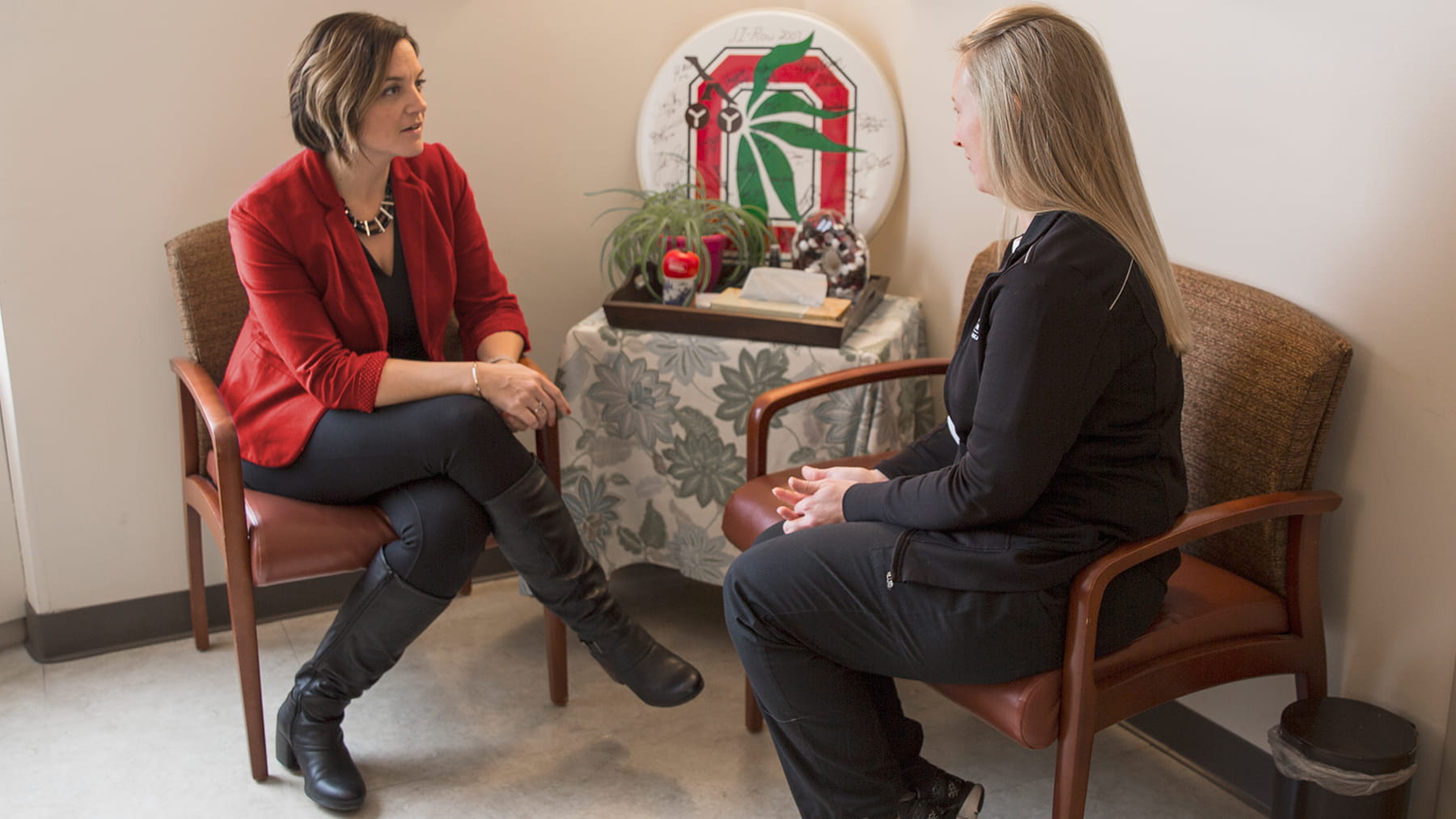What to expect in your first counseling session
 You’re ready to take the first step to improving your mental health – you’re making an appointment to talk with a therapist. Now what?
You’re ready to take the first step to improving your mental health – you’re making an appointment to talk with a therapist. Now what?
Are there things you should do to prepare for your first session?
How long before you start seeing results?
And what exactly will go on behind that closed door?
If you’re a bit anxious about your first therapy session, that’s normal. To help put you more at ease, we reached out to one of our therapists to find out what you can expect on day one.
“Some people thinking of starting therapy may feel like it will be scary, but it’s really not,” says Lori Murphy, a counselor at Ohio State Total Health & Wellness.
“Our job is to remain nonjudgmental, be very supportive, provide a safe environment and try to make you feel more comfortable about sharing uncomfortable things.”
Murphy, a licensed independent social worker, counsels individuals, couples and families at the nurse practitioner-led primary care facility at The Ohio State University Hospital.
She outlines what a first visit to her office (or most any other therapist’s office) is like:
First, it’s not like in the movies
You won’t spill your deepest secrets while lying on a couch. Chances are there won’t even be a couch in the room. And if there’s a conflict or concern deep down inside you, bringing it out will take time.
When preparing for your first session, it can be helpful to think about the primary issues that you hope to address. What thoughts or feelings are most bothersome? How would you like things to be different?
That first session is more of a Q&A
What brought you here? How is your mental health? Have you been experiencing depression, anxiety or other undesired feelings? What type of medicine are you taking? Have you been in therapy before? If so, what worked and what didn’t?
It’s really a time for you and the therapist to get to know each other. Murphy says those first visits help establish a good rapport with your therapist, which is critical. The more relaxed you feel with your therapist, the more likely you are to open up.
Speaking of visits…how many and how often?
Most therapists see patients every week or every two weeks. Your therapist will help you decide how often. Sessions typically run about 50 minutes. During those meetings, therapists may take notes while you’re talking. It’s OK to ask what he or she is writing down.
Don’t be surprised if you’re assigned homework
You may be asked to reflect on something, talk with someone, read a suggested book or change a habit between sessions. Keep in mind that you’ll get the most out of your meetings by completing your homework.
It’s OK to find a new therapist
If you feel like your therapist isn’t a good fit for you, don’t hesitate to look for a new one. Some patients go through several therapists before finding the right one.
“If one doesn’t jibe with you, that’s OK. You need to find the therapist with whom you feel comfortable opening up,” Murphy says.
How long until you start noticing a change in how you feel?
In general, you should be feeling better or at least be more aware of your thoughts or actions after three to five sessions, according to Murphy. Of course, that’s not set in stone because everybody’s different.
But if you feel like things aren’t working, speak up. A good counselor will have a variety of therapeutic styles that can be tailored to individual needs and problems.
“For most patients, the worst part is the discomfort of sharing things they haven’t shared before,” Murphy says.
“They’re afraid of opening that ‘can of worms’ about how they feel and seeing how the therapist will react. But we won’t judge and we’re here to do whatever we can to help you.”
People who receive primary care at Ohio State Total Health & Wellness have access to counseling. Make a primary care appointment.
614-685-9994




